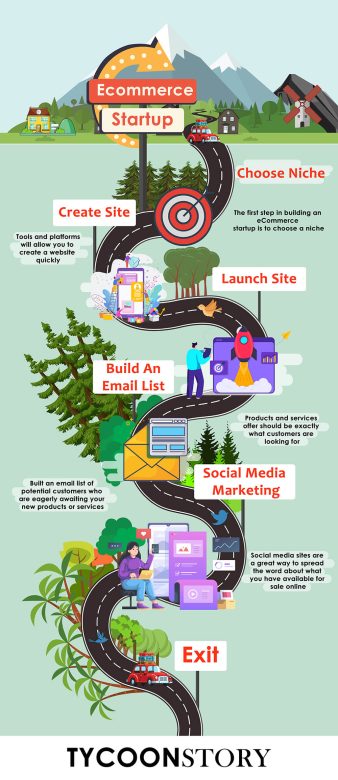As a business owner, you want to make sure that your company is successful. You know that marketing and branding are important parts of the equation, but what about building an eCommerce website? This article from a startup pr agency will discuss how to build, launch, and market an eCommerce startup from scratch.
Choose a Niche
The first step in building an eCommerce startup is to choose a niche. You want your products or services to have demand, so you don’t just want to do anything. Focus on something that you are truly passionate about and research it deeply before moving forward with the business plan for this new venture.
Create your Ecommerce Site
Creating an eCommerce site is easier than ever. Some tools and platforms will allow you to create a website quickly, such as Shopify or Big Commerce. With these easy-to-use options, it should only take you a couple of hours at most to have your store up and running! You can also check out our article on how to build an online store.
Launch Your Site for the First Time
Before launching your new company’s first product line, there are several steps to take:
- First, make sure your website is fully functional and ready to go.
- Next, you must optimize it for search engines so that people can find you when they are searching online.
Now it is finally time to launch the company! The products and services you offer should be exactly what your customers are looking for. If they aren’t, go back to step one and begin again until your store aligns with consumer demand.
Build an Email List
The next piece of advice for building an eCommerce startup is to build a list. A good email marketing provider will allow you to do this easily and at a minimal cost. There are many ways to drive traffic to your site without spending too much money, including using Reddit ads.
You spent time researching the right niche before moving forward with your business plan. You created a stellar website that is ready to go and optimized for search engines, so you know it will be found by consumers looking online. In addition, you have built an email list of potential customers who are eagerly awaiting your new products or services.
Market the Business on Social Media
After you have created your eCommerce website and launched it, the next step is to market it on social media. Social media sites are a great way to spread the word about what you have available for sale online. You can use Facebook or Twitter ads and other free marketing strategies such as Reddit posts to get the attention of potential customers interested in your products or services.
Promote Products through Affiliates and Partnerships
By now, you have built a strong customer base and are ready to start selling your products or services. When you reach the point that some of your customers want other products or services that you do not offer, it is time to look for affiliates and partnerships with similar companies to expand the product line available on your eCommerce site.
The world of eCommerce is constantly changing, and it can be difficult to keep up. There are many tools and platforms that you can use to create a website quickly, such as Shopify or Big Commerce. With these easy-to-use options, it should only take you a couple of hours at most to have your store up and running!




